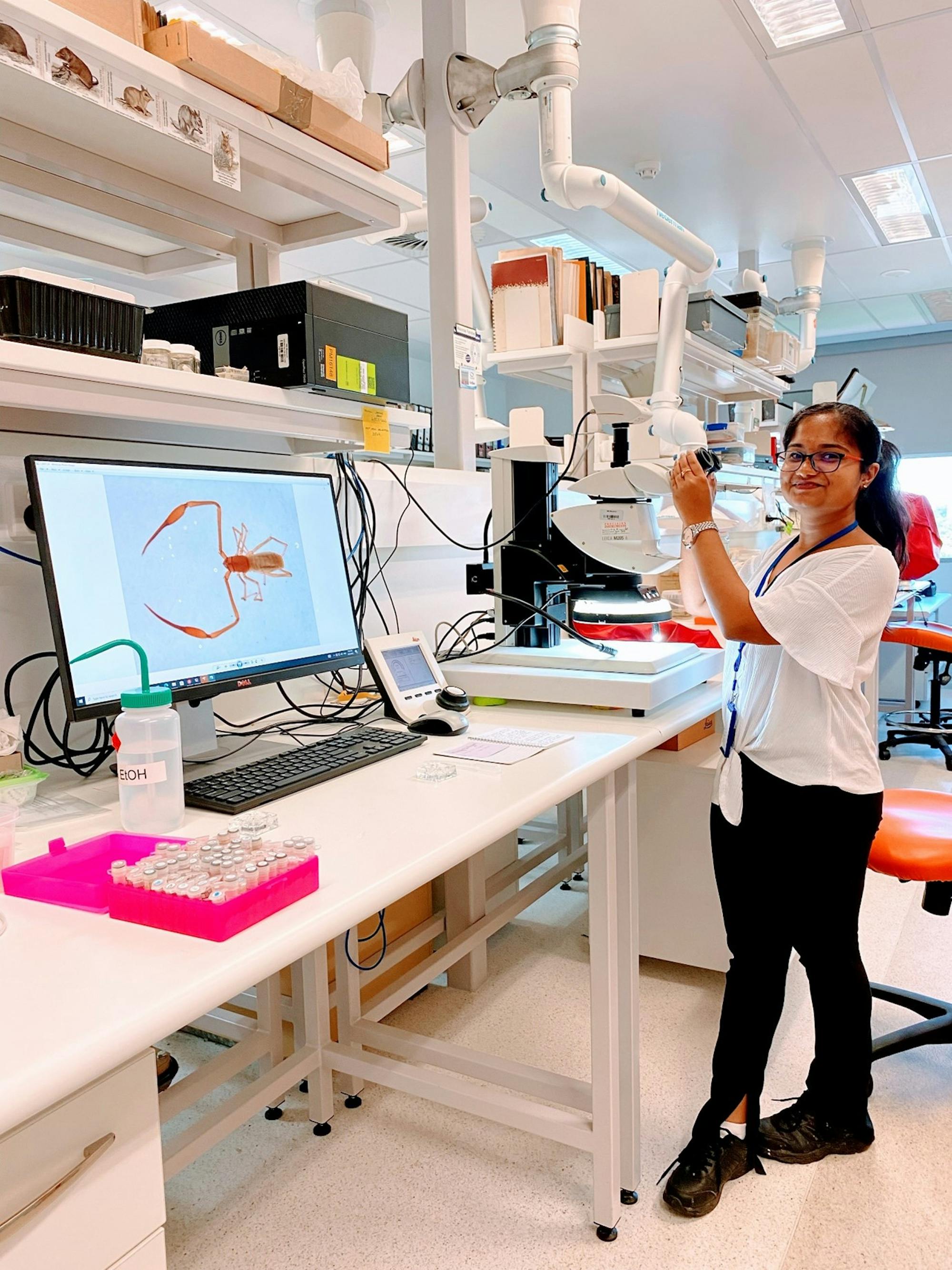Kruti Giridhar recently completed a McCusker Centre for Citizenship internship with the WA Museum, supporting the work of the Museum’s Arachnology section to increase knowledge of WA’s natural heritage – in particular, the brush-footed spider family.
Kruti, an Ashfield resident studying a Bachelor of Biomedical Science majoring in Microbiology and Immunology, Pathology and Laboratory Medicine, contributed 100 hours through her unique internship experience as a Curatorial Assistant.
“I worked at the WA Museum’s collection and research centre and helped in classifying and sorting out a particular family of spider specimens called Barychelidae,” Kruti said.
“I learnt about the magnificent collection of species the Museum manages and the diversity of Western Australia as a whole,”
As Curatorial Assistant intern, Kruti’s work was hands-on, and saw her checking specimens in the collection, sorting them into species, and updating the Museum’s database to enable correct identification.
Dr Mark Harvey, Terrestrial Zoology Curator with WA Museum, said that the quality of Kruti’s work has made a difference.
“The biological collections of the WA Museum represent an enormous repository of specimens that help document and interpret Western Australia’s biodiversity,” Dr Harvey said.
“Kruti’s meticulous approach and attention to detail were highly valued, and gave us enormous confidence in the results obtained,”
Along with helping to grow understanding of the brush-footed spider family, which includes many as-yet unnamed species, Kruti gained an appreciation for what the WA Museum brings to the community, and the importance of the work she was supporting through her internship.
“The Museum inspires curiosity in the community and preserves the cultural heritage of WA and its people,” Kruti said.
“WA is known for the mining and resources industries, with companies legally required to examine the biodiversity of a particular location before beginning projects; the knowledge gained through the work of the Museum plays a part in making sure mining does not occur where certain species are rare,” she said.
“The Museum’s research also brings awareness to the public about dangerous species, and helps in formulating drugs like anti-venom antidotes that are important for the community’s health,”
She said the opportunity to learn through the connections she made was rewarding.
“My curator is said to be one of the best taxonomists in terrestrial zoology in the world. I also got to meet two PHD students from different countries who gave me an insight into how the real scientific world works,
“I was able to meet curators of different departments and learn about their work,” she said.
Kruti recognised the internship as a “wonderful opportunity” with valuable learnings.
“I saw PCR (Polymerase Chain Reaction) technology, electron microscope and other scientific instruments in working which I had only read about in textbooks,
“I learnt that patience, consistency, and passion is all you need to be successful in one’s career goal… it [the internship] has made me consider a PhD as my next step of study,” she said.

